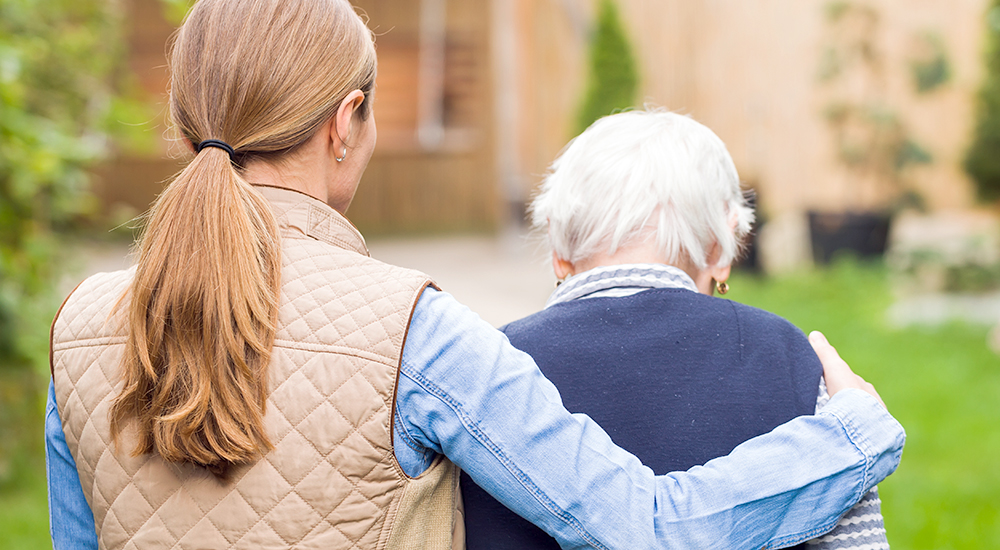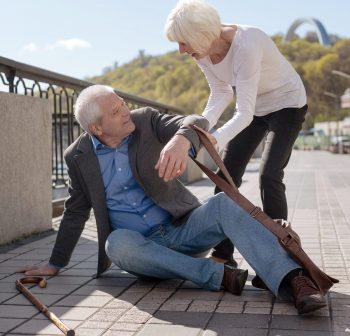We know that many caregivers are responsible for aspects of their loved one’s mobility. There are several important factors that caregivers should consider when determining whether to move or transfer their loved one from one position to another.
The Occupational and Physical Therapy teams at Harry S. Truman Memorial VA Hospital have a few recommendations.
The first consideration for safely moving your loved one is the physical position of the caregiver. Make sure that you’re standing in a way that you feel sturdy and in control.
The second is your loved one’s position. It’s important that they are in a position that gives them the ability to use their resources to help in the move.
Here are a few helpful tips to keep in mind:
- Have your loved one scoot their hips toward the edge of what they’re sitting on.
- Before helping them to move, make sure their nose is over their toes.
- Have your loved one put their hands on an armrest or something hard that they can push off of.
- Encourage them up, to push up, not out.
Patience also is vital in safe transfers. Moving someone doesn’t need to happen fast. It’s better to have your loved one take their time. If a transfer is not going well, go back to square one. Safety is the number one concern whenever attempting to move someone.
Give yourself as much time as you need.
Recommendations to prevent falls
In addition to positioning and patience, fall prevention also is an important consideration. To prevent falls, our team recommends the following for your loved one:
- Have regular vision exams
- Wear sturdy footwear
- Be aware of medication changes
- Engage in exercise to promote flexibility, strength and balance
If your loved one should fall, we encourage you to trust your judgement. If you didn’t see the fall and are uncertain of the impact, we recommend calling for assistance. If you see the fall, assess the situation.
If you have any doubts about possible injuries, again, we encourage you to call for assistance.
A safe environment also is an important aspect of preventing falls. We recommend limiting common “trip hazards” around your home. This includes extension cords, clutter, and throw rugs.
Ensure that there’s ample lighting
As a caregiver, if you have questions about what to do for your particular situation, please reach out to your primary care provider for a referral. We’re here to help you and your loved one.
This information was brought to you by the Health Promotion Disease Prevention committee in collaboration with Social Work, Physical Therapy and Occupational Therapy.
Topics in this story
More Stories
Study underscores important role COVID vaccination can have in protecting Veterans from infection and reducing long-term health consequences
Columbia VA’s robotic surgery teams completed their 800th robotic surgery and are on schedule to hit 1,000 by the end of the year.
In a decentralized clinical trial, Veterans can participate from their own homes or local VA instead of having to travel to a research site.








Step up in to a Walker. Nose over toes, feet back hands on Walker and lean forward. Is that right.
Tips for Caregivers of seriously disabled veterans but no money Stipends for them. That is the way VA has been operating
Terribly sad and terribly true.